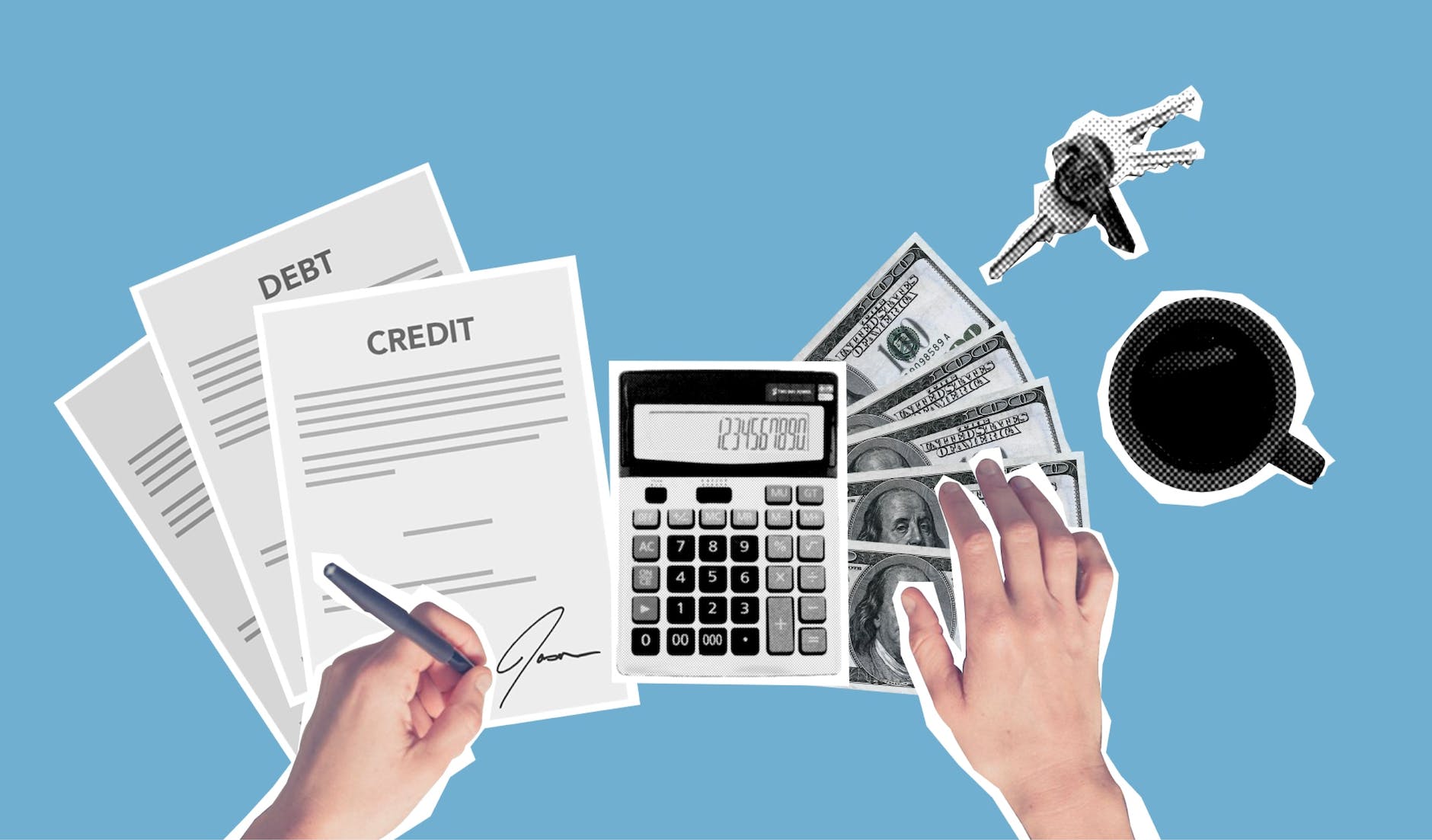Table of Contents
- Introduction
- Understanding Loan Settlement
- The Impact of Loan Settlement on Credit Scores
- 3.1. Credit Utilization Ratio
- 3.2. Payment History
- 3.3. Credit Mix
- 3.4. Length of Credit History
- Pros and Cons of Loan Settlement
- 4.1. Pros
- 4.2. Cons
- How to Minimize the Negative Impact of Loan Settlement
- Alternatives to Loan Settlement
- Steps to Take After Loan Settlement
- Rebuilding Your Credit After Loan Settlement
- Common FAQs
- 9.1. Does loan settlement completely remove the debt from my credit report?
- 9.2. Will settling a loan affect my ability to borrow in the future?
- 9.3. How long will the negative impact of loan settlement stay on my credit report?
- 9.4. Can I negotiate the terms of loan settlement with my lender?
- 9.5. Is loan settlement the same as debt consolidation?
1. Introduction
When facing financial challenges, sometimes settling a loan becomes a viable option. Loan settlement is the process of negotiating with your lender to pay a portion of the outstanding debt in exchange for a complete settlement of the loan. While it may offer relief from overwhelming debt, it’s important to understand how loan settlement can impact your credit report and overall creditworthiness.
2. Understanding Loan Settlement
Loan settlement involves reaching an agreement with your lender to accept a reduced amount as full payment for the loan. This amount is typically lower than the original loan balance, and it allows you to satisfy your debt obligation without paying the full amount. Once the settlement is reached and paid, the lender will update the status of the loan on your credit report.
3. The Impact of Loan Settlement on Credit Scores
Loan settlement can have both positive and negative effects on your credit scores. It’s crucial to be aware of these impacts to make informed decisions regarding your financial well-being.
3.1. Credit Utilization Ratio
One of the factors that influence credit scores is the credit utilization ratio, which measures the amount of available credit you are using. Settling a loan can reduce your total outstanding debt, thereby improving your credit utilization ratio. This, in turn, can positively affect your credit scores.
3.2. Payment History
Payment history is a significant component of credit scores. When settling a loan, it’s important to note that the settled account may be updated as “settled” or “settled for less than the full amount” on your credit report. This negative notation can impact your payment history, potentially lowering your credit scores.
3.3. Credit Mix
Credit mix refers to the different types of credit accounts you have, such as credit cards, mortgages, and loans. Settling a loan can affect your credit mix by reducing the diversity of credit accounts, which may have a minor negative impact on your credit scores.
3.4. Length of Credit History
The length of your credit history plays a role in determining creditworthiness. If you settle a loan that has been open for a long time, it can impact the average age of your credit accounts, potentially lowering your credit scores.
4. Pros and Cons of Loan Settlement
Before deciding to settle a loan, it’s important to weigh the pros and cons associated with this course of action.
4.1. Pros
- Reduced debt burden: Loan settlement provides a way to alleviate financial stress by significantly reducing the amount you owe.
- Avoiding bankruptcy: Settling a loan can be an alternative to filing for bankruptcy, which has more severe consequences for your creditworthiness.
- Negotiation leverage: Loan settlement allows you to negotiate with your lender to find a mutually beneficial agreement.
4.2. Cons
- Negative impact on credit scores: Loan settlement can have a negative impact on your credit scores, affecting your ability to obtain favorable terms for future loans or credit.
- Potential tax consequences: Depending on the type of loan and settlement agreement, you may be subject to tax obligations on the forgiven debt.
- Collection efforts: Before reaching a settlement, you may experience collection efforts from your lender, which can be stressful.
5. How to Minimize the Negative Impact of Loan Settlement
While loan settlement may have negative consequences, there are steps you can take to minimize its impact on your credit report and overall financial health.
- Communicate with your lender: Maintain open communication with your lender throughout the settlement process to ensure a mutually agreeable outcome.
- Obtain written agreement: Get written confirmation from your lender stating that the settled amount will be considered as payment in full for the loan.
- Monitor your credit report: Regularly check your credit report to ensure that the settled loan is accurately reported and that any negative notations are updated accordingly.
6. Alternatives to Loan Settlement
If you’re considering loan settlement but want to explore other options, here are a few alternatives to consider:
- Debt consolidation: Consolidating your debts into a single loan or credit account can make repayment more manageable.
- Debt management plans: Working with a credit counseling agency can help you create a structured repayment plan.
- Renegotiating loan terms: Contact your lender to discuss the possibility of modifying the terms of your loan to make it more affordable.
7. Steps to Take After Loan Settlement
After settling a loan, it’s important to take proactive steps to rebuild your credit and regain your financial stability. Here are some recommended actions:
- Pay bills on time: Make timely payments for all your current credit obligations to establish a positive payment history.
- Create a budget: Develop a budget that allows you to manage your finances effectively and avoid future debt issues.
- Build an emergency fund: Start saving for unexpected expenses to avoid relying on credit for emergencies.
8. Rebuilding Your Credit After Loan Settlement
Rebuilding your credit after loan settlement takes time and consistent effort. Consider the following strategies:
- Obtain a secured credit card: A secured credit card can help you establish a positive payment history by making timely payments.
- Become an authorized user: Ask a family member or friend with good credit to add you as an authorized user on their credit card account.
- Apply for a small loan: Applying for a small personal loan and repaying it on time can demonstrate responsible borrowing behavior.
Conclusion
Loan settlement can provide relief from overwhelming debt but can also impact your credit report and creditworthiness. It’s essential to weigh the pros and cons and consider alternative options before making a decision. By taking proactive steps to minimize the negative impact and rebuilding your credit, you can regain financial stability and improve your creditworthiness over time.
Frequently Asked Questions
1. Does loan settlement completely remove the debt from my credit report?
Loan settlement does not completely remove the debt from your credit report. It will be updated as “settled” or “settled for less than the full amount,” indicating that a settlement was reached.
2. Will settling a loan affect my ability to borrow in the future?
Settling a loan can affect your ability to borrow in the future. Lenders may view it as a negative factor when considering your creditworthiness for new loans or credit accounts.
3. How long will the negative impact of loan settlement stay on my credit report?
The negative impact of loan settlement can stay on your credit report for up to seven years. However, its significance may diminish over time as you establish positive credit behavior.
4. Can I negotiate the terms of loan settlement with my lender?
Yes, you can negotiate the terms of loan settlement with your lender. It’s important to engage in open communication and discuss the possibilities for a mutually agreeable agreement.
5. Is loan settlement the same as debt consolidation?
No, loan settlement and debt consolidation are different. Loan settlement involves negotiating with the lender to pay a reduced amount, while debt consolidation combines multiple debts into a single loan or credit account.



